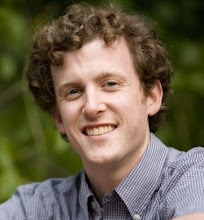One of the most interesting aspects of our recent trip to Honduras was taking part in a community needs assessment. The Methodist missionary who works on health issues in Danli developed this four-page survey in conjunction with the municipal health board. Members of our group paired up with members of the Methodist church and went to different neighborhoods, administering the survey door-to-door. The questions deal with community life (What are the disadvantages of living in your community? What, if any, services does the government provide to this community?); nutrition (What foods do you eat most frequently? How do you store them?); and health (When someone in the family is ill, where do you go? Are there insect problems in or around the house?).
Clearly, this was never going to be a scientific survey. Over five days, we collected maybe 300 or 400 surveys in a city of 100,000. The responses vary wildly, reflecting both actual differences and differences in the way questions were interpreted. Furthermore, I don't think the surveys will tell anybody much that they didn't already know. If people don't have running water or electricity, those are the biggest thing they desire. Every community could use additional sources of work. The people who live by the dump would prefer not to live by the dump. The people who live in the flood-channels of the river would prefer not to live there, but at least they can live there for free.
These excursions were eye-opening for us North Americans, but interestingly, they seemed at times to be eye-opening for the congregants we accompanied, too. I found that really striking, and increasingly I am believing that that was the real objective of the survey project. The city government is not going to see the survey report and say, "Well, now that we finally know the people want water that won't make them sick, let's get to it!" But by involving the church members in investigating the problems, and in visiting people poorer than themselves, the missionary has achieved a big first step: she has eight or ten church members who are invested in improving living conditions in Danli, and who are asking, "Why not?"
We got to see the wheels start turning on this during a debriefing conversation one afternoon. People were throwing around a lot of ideas about water solutions might be brought to a neighborhood we'd visited, but they weren't gaining any traction because that's a big capital project. It takes a lot of other people to invest in and execute such a plan. Then the discussion turned to some more basic health and hygeine practices. A few noted how there were great differences in cleanliness from house to house, and that these differences didn't necessarily correspond to how much money the family had, or even the type of home. Then, before they settled into a resigned critique of people who don't keep a clean house, the missionary said, "If I could help you to receive training as health educators, would you be interested in returning to some of these places, and helping people to make simple changes that would improve the health of their families?" And now they're off and running.
I think I loved this part of our trip because we learned a ton, and contributed almost nothing. I spent three days with the same partner, a young woman named Karina, and mostly my job was to carry the vitamins. But here was a genuine opportunity for us to travel to another country and meet people as they really exist: not at a clinic or construction site, not just at a church service, but at their homes on an average day. The question I'm really turning over right now is whether this kind of experience is necessary for meaningful personal interaction and transformation. In other words, do we have to look for less concretely productive projects for U.S. mission teams if we want them to have more transformative experiences? Does the labor get in the way of the learning?
Also, God willing, this will be the only time I have to wear a turquoise mission team t-shirt in the airport.

No comments:
Post a Comment